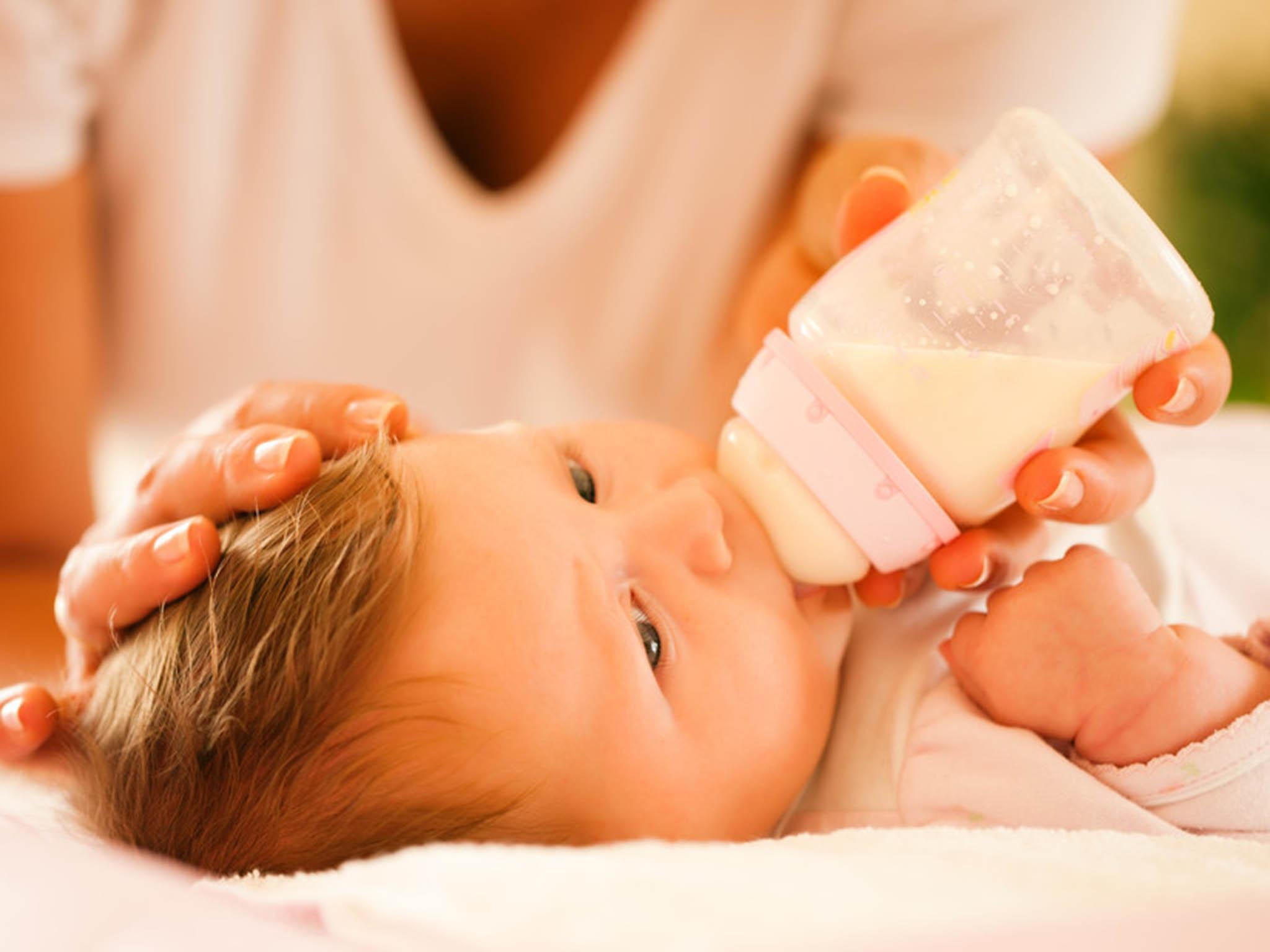My baby is two months old and already the sexism that surrounds parenting is overwhelming
I love watching my husband care for our child. It fills me with joy to see him having fun and changing his nappy. But he's done it from the outset. While it might be special for me to watch, it shouldn't be extraordinary for anyone else to witness


"He's a very hands on dad," observed a middle aged woman in a pub where we were having dinner, "It's so lovely to see."
We smiled politely as she cooed over our son and my husband, who had picked up four-week-old Freddie to comfort his crying as I tucked into my food.
But really I should have corrected her – my husband is not a 'hands on dad' at all. He's just a dad.
I hate the expression. It implies firstly that for a man to have interaction and involvement in the upbringing of his child is not normal, and secondly that the mother is in some way falling short for not being the one to always look after the baby.
If I were seen comforting my son in public, no one would label me a “hands on” mum. It would sound ridiculous. It's the same as calling a woman a working mum or “mumpreneur” – a term I hate. You wouldn't refer to a man as a working dad. Yet in 2017 we still have these sexist views that women are the child carers and men go out to make the money. I have many female friends who have children and work, and I know dads who share the childcare. So why are they being made to feel different?
I class myself as a feminist and am well aware of the inequalities still suffered by women in today's world. But until I became pregnant I had no idea of the subtle but deep rooted sexism directed at men when it comes to bringing up children.
Everything about having a baby is aimed at women. My husband purchased much of the items for Freddie before his arrival, because he's good at comparing prices and reviews online. But the reviews he read were all on websites aimed at mothers not fathers.
He ordered me a breast pump online to collect in a high street store. I remember feeling slightly embarrassed at the fact my husband had sorted this out rather than me when he picked it up, as I browsed the baby clothes. But he's just better at choosing gadgets than I am, so why shouldn't he have taken charge of this? Breastfeeding our son is his concern too.
"Where are the websites for dads?" He asked me. Or, better still, the ones for parents, I thought. We are in this together.
I found I could sign up to dozens of companies online including many well-known high street stores, in exchange for free gifts and advice. But the vast majority were directed at only women, with no reference to men at all.

One of the few stores solely for babies and children even has the word mother in its name. Yes it might have opened its first store in 1961, at a time when the woman certainly would have been the one to look after the kids. But times have changed, and maybe it should think about moving into the current century.
My husband and I were given a book as a gift before Freddie was born with tips and advice on our baby's early days. It was a new book, written by a man and woman, but the description on the front labelled it “the best guide to help a woman through the first few months with her baby”.
In comparison, my husband received a book called Commando Dad, with a picture of a cartoon dad wearing army gear on the front.
When it comes to antenatal appointments, men are legally allowed to take time off work to accompany their pregnant wife to two. How generous. Considering I had more than 10 in total, this meant if my husband wanted to come along to others he had to make the time up. Of course he wanted to be there. We were discussing our unborn baby, whether it be going through the pros and cons of having an induction, creating a birth plan, or even listening to our baby's heartbeat, it was vital he attended. Yes it was my body carrying our child, but my husband was there every step of the way to support me and he would be there throughout the birth, so he needed to be prepared, know the facts and help make those all-important decisions with me.
One antenatal class discussed postnatal depression and gave the symptoms for men to look out for in women, ignoring the fact they can suffer too. In fact, statistics show that one in three men are worried about their mental health following the birth of a baby. But how many would know where to get help? And how many would feel able to look for help when postnatal depression is often associated with women, and when all the checkups following birth are centred around her needs, not the father's.
What shocked me the most is that dads don't even have a legal right to accompany their partner during birth. The pitiful two week paternity leave starts only after the baby is born. I can't imagine any company ever denying a man the chance to be there for the birth of his baby, but it did mean my husband and I had to have a discussion about whether he would be there from the outset if I were induced, as the process can take a long time. He wanted to be there, of course, but would his work be so understanding when it could be several days before our baby arrived?
For men who have to travel as part of their job, there is nothing in place to allow them to refuse to do this in the weeks close to their baby's due date, meaning a man could be sent across the country or even abroad during this crucial time. When there are so many laws protecting a pregnant woman, the father-to-be seems to have been forgotten about entirely.
These small but profound messages send out a signal to dads that they should be taking a back seat.
I love watching my husband care for Freddie. It fills me with joy to see him having fun with our son, chatting to him as he changes his nappy and trying to settle him when he's upset. But he's done it from the outset. While it might be special for me to watch, it shouldn't be extraordinary for anyone else to witness.
So the next time someone thinks they are making a nice comment about my husband's relationship with our son when they call him “hands on”, perhaps I'll have the guts to correct them. Or maybe I'll just do the very British thing of smiling politely and ignoring it. Because after all, the woman we spoke to in the pub can't really be blamed for her misguided comment, when everything around her reinforces and strengthens her view.
Join our commenting forum
Join thought-provoking conversations, follow other Independent readers and see their replies
Comments
Bookmark popover
Removed from bookmarks